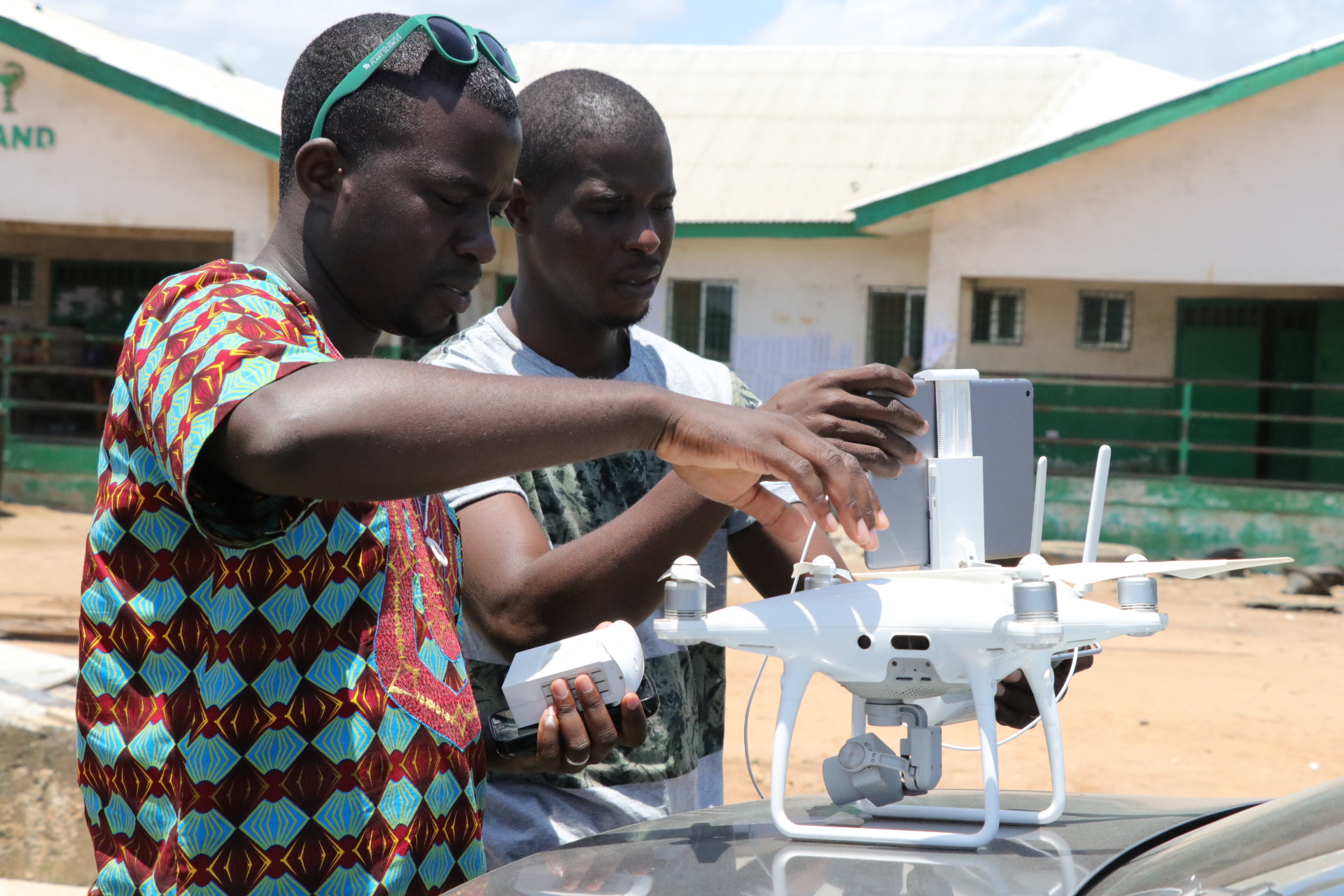Goal 8 - Decent Work and Economic Growth
Download page as PDFPromote inclusive and sustainable economic growth, employment and decent work for all
“Roughly half the world’s population still lives on the equivalent of about US$2 a day. And in too many places, having a job doesn’t guarantee the ability to escape from poverty. This slow and uneven progress requires us to rethink and retool our economic and social policies aimed at eradicating poverty.”

By incorporating youth and other vulnerable populations, open mapping activities can provide vocational training in the latest open source GIS tools to substantially reduce the proportion of youth not in employment, education, or training and help achieve full and productive employment and decent work for all women and men, including for young people. Additionally, mapping economic and service centers into OpenStreetMap can reveal patterns in employment gaps and opportunities.
What has been done?
Leclara (Ghana): introduced community-run, sustainable tourism initiatives in Larabanga, Ghana, in order to generate revenue at the local level. A prerequisite for successful tourism is having a map of the community. Leclara plans to train groups of youth in the region on open mapping, conducting regular exchanges with experienced mappers from OSM Ghana. Using OpenStreetMap, Leclara aims to build a meaningful source of sustainable income and new pathways for youth to gain skills that unlock future job opportunities.
YouthMappers: Capitalizing on web-based open geospatial technologies, and a network of universities around the globe, YouthMappers works to cultivate a generation of young leaders to create resilient communities and to define their world by mapping it. YouthMappers Chapters are providing young adults with GIS and other highly valuable skills for improved employment opportunities.
Mapping Financial Inclusion in Uganda: In order to increase digital financial inclusion, HOT mapped access to financial services in Uganda, allowing providers to analyze gaps in coverage. Access to digital financial services is fundamental to enabling struggling people to become more economically stable, prosperous, and resilient. These services – payments, credit, savings and insurance offered through mobile phones or other technology – are reaching millions of people around the world who had not previously been included in the financial system.
What else can be done?
- Engage with youth to map places they visit to understand where youth are spending their time if not in school or work, to understand where youth are out of school or work, and to understand gaps in services for youth
- Provide training in UAV/drone operation, GIS, field data collection, and other technical skills that can yield future employment and business development
- Map employment service centers, youth centers,and vocational training sites
- Map financial services to encourage and expand access to banking, insurance, and financial services for all.
- Map tourism locations and services; adding to the map locations to attract business as well as understand gaps and opportunities